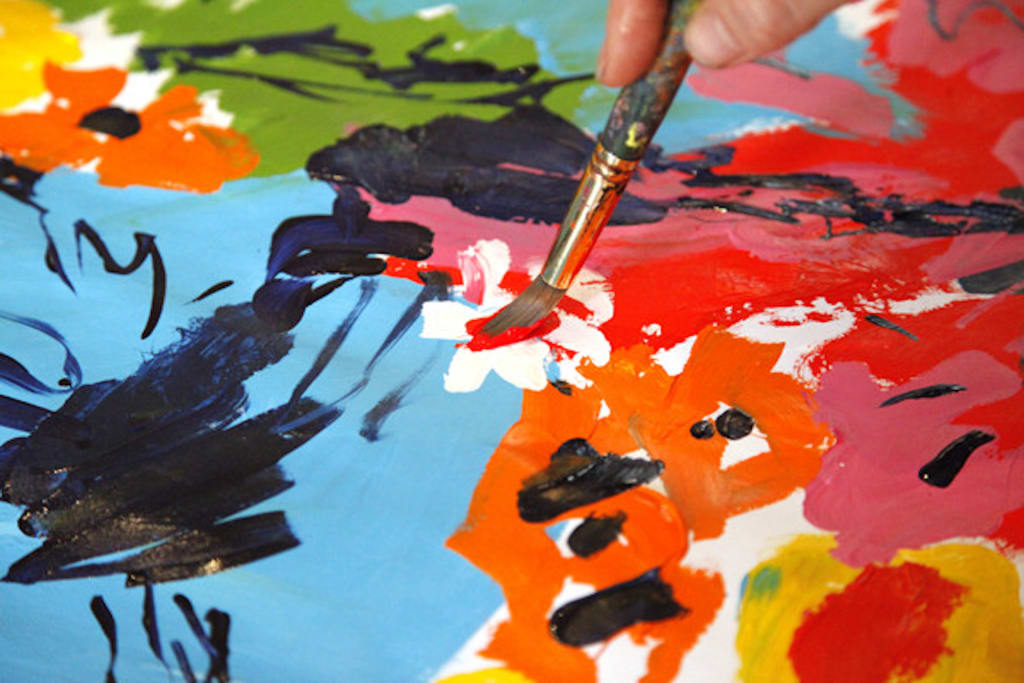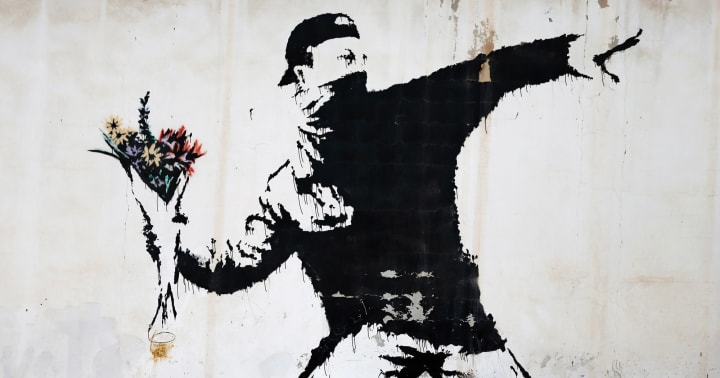Can Art Save The World?
As an artist, I believe that a large portion in our ability to keep the peace deals with art, which leads me to ask, "Can art save the world?"

Right now, it feels like the world is on the brink of a global nuclear war. Korea has been flexing its military prowess. China has been slowly trying to move into certain sections of the South Seas. America has Trump's very aggressive cabinet in power, and Brexit's pressures have made the EU very unstable.
For many people out there, myself included, it's becoming very clear that politicians aren't very likely to be the ones who will keep us from bombing our species out of existence. Or, more specifically, politicians alone will not be the ones who can keep us at peace during times like this.
In order for peace to happen, we have to learn to embrace one another's cultures, learn from them, and open our minds to new ideas that promote equality and universally beneficial choices. This effort has to be on a large scale, almost universal level in order for it to work.
The problems are obvious - every country's culture is different, and every country has hangups that cause citizens in those regions to treat people differently. So, is there even a way to bridge the gaps we have with one another?
Right now, one of the biggest issues is quelling the potential nuclear war looming with North Korea - and we as a country will need China's help to do so. As an artist, I believe that a large portion in our ability to keep the peace deals with art.
How art affects our perceptions of the world is amazing.

A good friend of mine has told me something very true about media consumption of all forms: "You are what you eat." Though this usually is about dieting, the fact is that this same phrase applies to what we read, watch, and observe.
Simply put, being around artwork that promotes understanding and egalitarianism makes you more willing to hear what others have to say. Being around artwork that tends to glorify violence and misogyny, on the other hand, tends to make us think this is better.
The art we produce mimics life, and life has a funny way of mimicking art. This is why so many pieces seem to strike a chord with us for centuries after they are created, and why so many people end up getting emotional over the right movie or book.
Art can provoke thought, get people to embrace new concepts, and also become more friendly to our fellow neighbors. And, that makes it an incredible vehicle for peaceful exchanges.
The Fate Of The Furious proves the power of art.

A couple of days ago, the latest Fast and the Furiousmovie debuted in China, and it grossed a groundbreaking $190 million. The overall box office takein was $553 million - more than the latest Star Wars movie brought about by Disney.
In America, that same movie only grossed about $100 million. In the movie industry, producers are beginning to talk about the blooming interdependency in the movie world between China and the US. With China's markets being multiple times American sizes, it's foolish to not want to make movies that cater to them.
Part of the new push comes from the fact that Chinese regulators ended up loosening up restrictions on foreign films. If you ask many artists, that law passing could be that little move that needed to be done in order to get China to embrace America as an ally - if only for the reason of financial interdependence with the States.
But, at the same time, cultural embracing doesn't mean that you will get agreement on policies.

China loves America's free speech culture, movies, and music. That much can be seen from the extremely active Chinese hip hop scene, the box office blowout that was the Fast and Furious release, as well as the fact that major American brands are considered to be luxury items there.
America, whether we realize it or not, has a lot of influence thanks to its active arts world. Our culture is a "soft touch" influence. But, that doesn't mean that China will embrace American political policies. In fact, many people in China are actively suspicious about American political policies.
The New York Times recently cited a Pew Research study on foreign perceptions of the US conducted last year saying, "A majority, 54 percent, of Chinese said the United States was seeking to prevent China from becoming as powerful as itself."
But, here's the thing that people aren't seeing here: we don't need other countries to like our policies right now to establish a route to peace.
Rather, getting a huge market in China would be more about gaining interdependence on one another. In order for them to protect their own interests, they would have to work to ensure war with Korea doesn't break out. After all, if America goes down, China would suffer, too.
Economics first, ideas next, then politics last.

Right now, just ensuring that we don't get the stuffing bombed out of us is a good start - even if that happens to be done via economic independence. As other nations see American movies and artwork, one can hope that the ideas we discuss in that artwork will resonate with them, make them think, and help them embrace stronger ties with our country.
About the Creator
Cato Conroy
Cato Conroy is a Manhattan-based writer who yearns for a better world. He loves to write about politics, news reports, and interesting innovations that will impact the way we live.






Comments
There are no comments for this story
Be the first to respond and start the conversation.